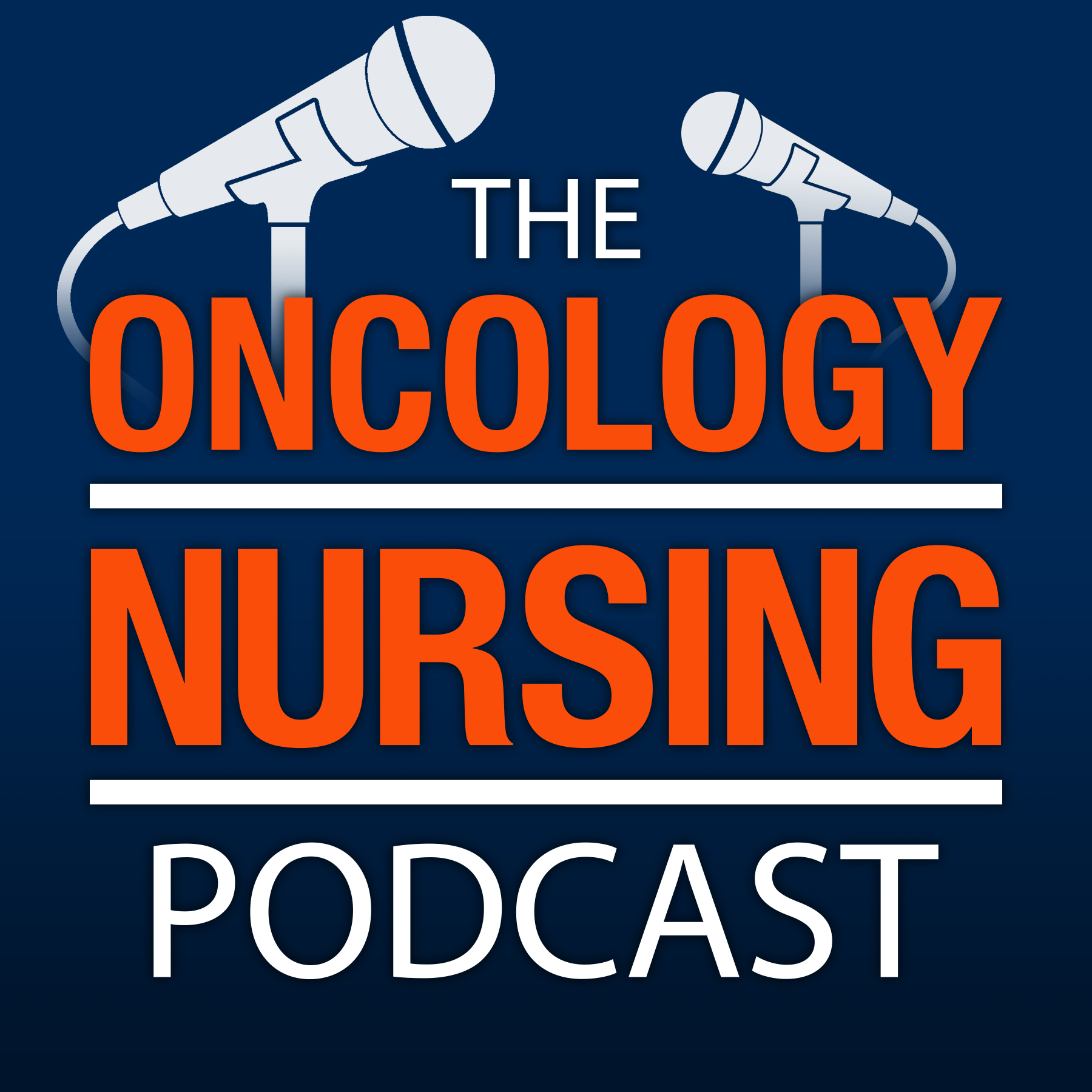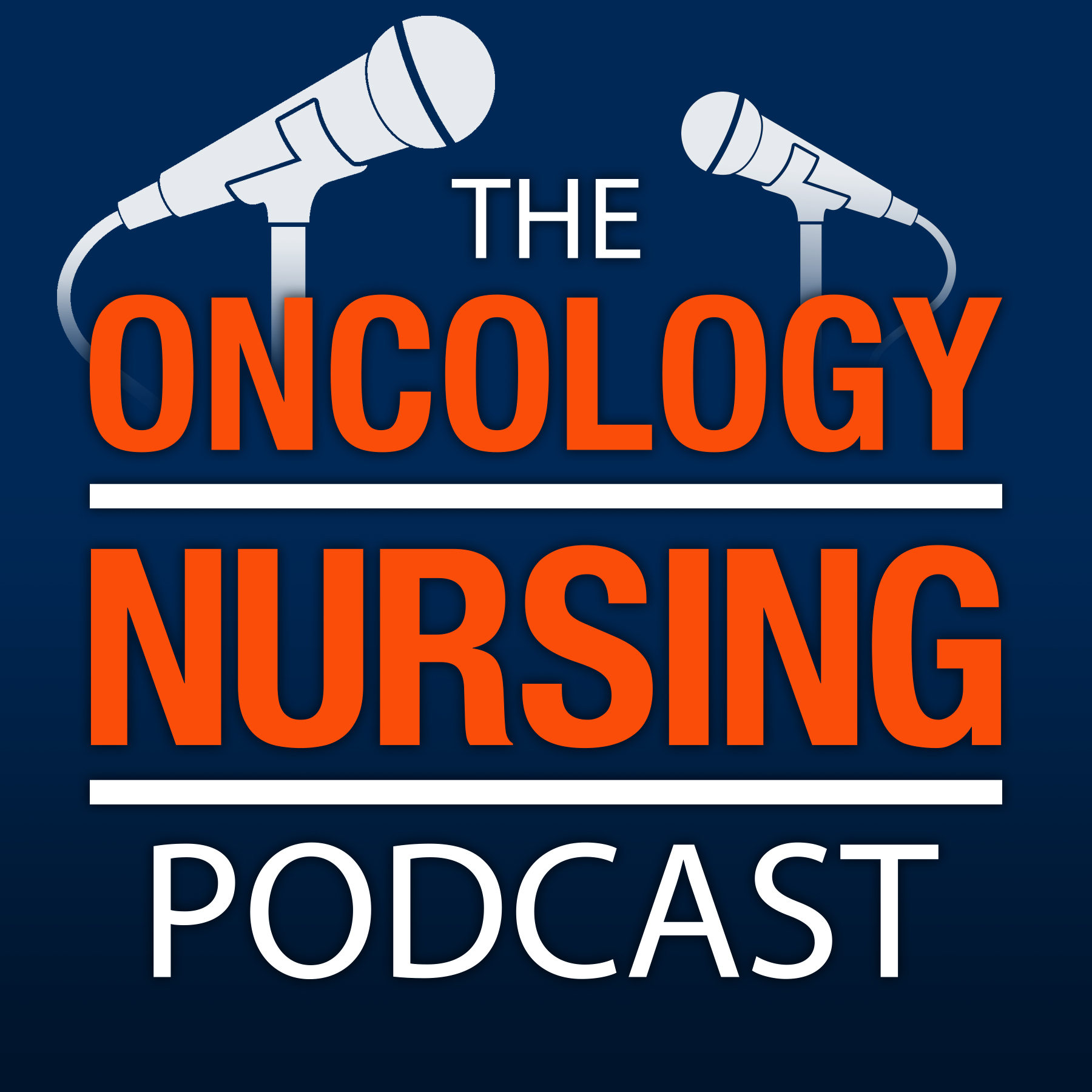
Episode 301: Radiation Oncology: Side Effect and Care Coordination Best Practices

The Oncology Nursing Podcast
Shownotes Transcript
“Social work was involved because we could be radiation gung-ho, ready to go; chemo can be ready, but whoops, this patient doesn’t have a ride. It can be little things like that, you know, where we kind of forget. That’s why you need kind of a multidisciplinary approach. If it’s not your social worker, your navigator is going to know more and be like, ‘This patient needs a ride. I’m working on gas cards.’ Something like that can also halt a patient starting [treatment],” ONS member John Hollman, RN, BSN, OCN®, senior nurse manager of radiation oncology at AdventHealth Cancer Institute in Orlando, FL, told Jaime Weimer, MSN, RN, AGCNS-BS, AOCNS®, manager of oncology nursing practice at ONS, during a conversation about care coordination between radiation oncology and other oncology subspecialties. Music Credit: “Fireflies and Stardust)” by Kevin MacLeod Licensed under Creative Commons by Attribution 3.0 Earn 0.5 contact hours of nursing continuing professional development (NCPD) by listening to the full recording and completing an evaluation at courses.ons.org) by March 1, 2026. The planners and faculty for this episode have no relevant financial relationships with ineligible companies to disclose. ONS is accredited as a provider of NCPD by the American Nurses Credentialing Center’s Commission on Accreditation. Learning objective: Learners will report an increase in knowledge related to coordination of care to assist with the management of radiation-related side effects. Episode Notes
Complete this evaluation for free NCPD).
- Oncology Nursing Podcast:* Episode 12: The Intersection of Radiation and Medical Oncology Nursing) Episode 60: Radiation Side Effects With Head and Neck Cancers—ONS Congress) Episode 128: Manage Treatment-Related Radiodermatitis With ONS Guidelines™) Episode 272: Oncologic Emergencies 101: Radiation Therapy for Emergent and Urgent Interventions) Episode 298: Radiation Oncology: Nursing’s Essential Roles)
Clinical Journal of Oncology Nursing* articles: Patient Handoff Processes: Implementation and Effects of Bedside Handoffs, the Teach-Back Method, and Discharge Bundles on an Inpatient Oncology Unit) Radiation Therapy Pain Management: Prevalence of Symptoms and Effectiveness of Treatment Options) Partial Breast Irradiation: A Longitudinal Study of Symptoms and Quality of Life)
Oncology Nursing Forum* article: Symptom Clusters in Patients With Brain Tumors Undergoing Proton Beam Therapy) ONS Voice* articles: The Intersection of Radiation and Medical Oncology Nursing) (featuring an interview with John Hollman) Today’s Immunotherapy Combinations) New Treatments in Radiation Oncology)
49th Annual ONS Congress® Radiation Track) and John Hollman’s radiopharmaceuticals session) ONS book: * Manual for Radiation Oncology Nursing Practice and Education*) ONS course: ONS/ONCC Radiation Therapy Certificate™) ONS Communities: Radiation) ONS Huddle Cards: External beam radiation) Brachytherapy) Proton therapy) Radiation)
Find your local ONS Chapter’s next meeting). RT Answers) American Brachytherapy Society)
To discuss the information in this episode with other oncology nurses, visit the ONS Communities). To find resources for creating an ONS Podcast Club in your chapter or nursing community, visit the ONS Podcast Library). To provide feedback or otherwise reach ONS about the podcast, email [email protected]). Highlights From This Episode “Skin reaction is a big thing in our field for breast cancer. Managing it with lotions, creams, and stuff like that is temporary. To something more complicated, like the head and neck cancer patients with base of the tongue, where the beam is directed straight at that area of the body, which is very delicate, as we know, very, very, very tough treatment. You know, anything from esophagitis to dysphagia, dry mouth, no taste. Salivary glands are affected. So it really kind of depends, obviously, where we aim the machine.” TS 2:04 “I think it really determines on how that radiation nurse knows how radiation affects the cells that we treat. So, for instance, I always tell my patients when I’m educating them for head and neck, and I know they’re going to be getting concurrent cisplatin or something like that once a week, I’m going to tell them, like, ‘The majority of your acute side effects are us. Like, the chemo is going to work as a sensitizer. You’re going to have fluids that you’re going to be needing, but the difficulty swallowing, you know, all that stuff is our fault.’” TS 6:12 “If your med-onc is not affiliated with your rad-onc site, that can be a horrible barrier to try to break through because you don’t know anybody in that office. You identify yourself on the phone as someone from a competing company. . . . But it’s just breaking through that, and it just takes that nurse’s initiative and, hopefully, physician coordination as well, to work on, rad-onc between med-onc and getting that to kind of facilitate that.” TS 11:29 “Social work was involved because we could be radiation gung-ho, ready to go; chemo can be ready, but whoops, this patient doesn’t have a ride. It can be little things like that, you know, where we kind of forget. That’s why you need kind of a multidisciplinary approach. If it’s not your social worker, your navigator is going to know more and be like, ‘This patient needs a ride. I’m working on gas cards.’ Something like that can also halt a patient starting [treatment].” TS 20:52 “I love the ONS radiation communities. We do a lot of idea sharing on communities. A rad-onc nurse from New York can post something like, ‘Hey, what are you guys doing for this side effect? We’re not having any luck with this.’ And you get some buy-in. And as long as the nurses remember evidence-based practice is always key. You know, just because you use one lotion, it doesn't mean, it’s going to be good for everybody. I like to see the evidence behind it.” TS 22:42 “With the ever-evolving radiopharms that are coming out, you know, that we’re doing here, too, it’s turning more into nurses are actually giving the treatment. And that’s what I’m speaking on in Congress, is a nurse’s evolving role in radiation and radiopharms especially. It’s a huge breakthrough. It’s the future pretty much.” TS 24:19